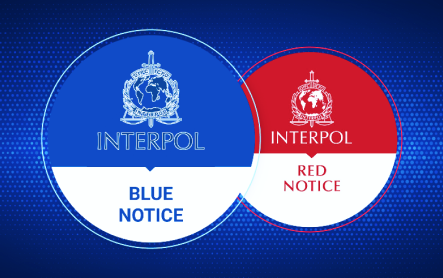Extradition Lawyers in Norway
Norway is an active participant in the international legal order, actively cooperating with other countries to combat transnational crime. One of the key elements of such cooperation is the extradition process and the use of Interpol’s red notices to track down criminals. Thanks to the extradition procedure, criminals will not be able to escape justice by hiding in other jurisdictions.
If you’re facing the threat of extradition in Norway, entrust the defense of your interests to our team of experienced lawyers. We specialize in extradition cases and international searches, providing comprehensive legal services at every stage of the process.
What is Extradition?
Extradition is the legal process of transferring an accused or convicted individual who has committed a criminal offense from one country to another to serve their sentence and carry out the court’s verdict. The primary goal is to ensure justice by holding the individual criminally responsible for enforcing the assigned punishment.
Extradition is a crucial mechanism for countries to collaborate in combating transnational crime. This procedure prevents criminals from evading justice by moving from one country to another. It contributes to the restoration of legality and the protection of victims’ rights.
Extradition applies to serious criminal offenses for which the punishment entails imprisonment for a term of not less than one year: murder, inflicting grievous bodily harm, corruption, money laundering, drug trafficking, financial fraud, and others.
Key extradition terms:
- The crime must be recognized as criminally punishable in both countries.
- A person cannot be extradited for a crime for which they have already been convicted or acquitted in another jurisdiction.
- If the statute of limitations for criminal prosecution or for the execution of a sentence has expired in one of the jurisdictions, extradition will be denied.
- Extradition is not permissible if the request is based on political, racial, religious, or other discriminatory motives.
- Extradition is impossible if there’s a risk of torture, inhumane treatment, or unfair legal proceedings.
In Norway, the extradition process is regulated by the national Extradition of Criminals Act, which establishes the rules and conditions for extradition. It defines the grounds for extradition, the rights of individuals subject to extradition, and interaction with other countries.
Norway is also a party to the European Convention on Extradition, which standardizes the extradition procedure among European states. It includes provisions on dual criminality, statutes of limitations, and the political motivation of requests. As a member of the EEA, Norway adheres to common European standards in human rights and criminal proceedings.
The Extradition Process in Norway
Extradition procedure starts with an official request for extradition submitted to the Norwegian Ministry of Justice by a foreign country. It must contain all the necessary information, including a description of the crime, a national arrest warrant, legal grounds, and evidence proving the suspect’s involvement in the crime.
The Ministry of Justice is conducting a preliminary assessment of the request to ensure that it complies with Norwegian legal standards and international agreements.
At this stage, compliance with the principle of dual criminality is checked, along with the statute of limitations and guarantees of human rights in the requesting country. If the request is deemed justified, the case is transferred to court. Extradition cases in Norway are heard in district courts.
The court is examining the circumstances of the case, reviewing the evidence presented, and hearing the arguments of both sides. The person subject to extradition has the right to a lawyer and defense.
Then, the court issues a decision on whether the extradition is permissible or not. If the extradition is deemed lawful, the decision is sent to the Ministry of Justice for final approval. If the request is denied, the extradition process is concluded.
Even with a court’s positive decision, the Norwegian Ministry of Justice has the right to reject a request if its fulfillment contradicts the country’s interests or violates human rights. After approval, the relevant authorities will organize the transfer of the individual to representatives of the requesting country.
Non-extradition countries with Norway
Non-Extradition Countries are nations with which Norway does not have active extradition treaties. This means that there is no legally simplified mechanism for the transfer of accused or convicted individuals between such countries.
Norway does not have extradition agreements signed with a number of countries:
- China;
- Saudi Arabia;
- Iran
- Iraq;
- Syria;
- North Korea;
- Vietnam;
- Cuba;
- Eritrea;
- Sudan
- Belarus;
- Bolivia;
- Venezuela;
- Myanmar;
- Zimbabwe
- Nepal;
- Mongolia;
- Lebanon;
- Malaysia;
- Qatar;
Nevertheless, the absence of a treaty does not completely rule out extradition: it can be carried out on the basis of individual agreements, international obligations, or diplomatic negotiations.
What is an Interpol Red Notice?
A Red Notice is an official request circulated through Interpol to locate, temporarily detain, or arrest a person wanted internationally.
However, a Red Notice does not have the legal force of an international arrest warrant. It’s a communication tool used for coordinating actions in law enforcement. However, each country independently decides how to respond to the notice, based on the specifics of its national legislation.
Primary functions of the red notice:
- Locating and identifying a person wanted by law enforcement within the territory of Interpol member countries.
- Effective exchange of information between law enforcement agencies of different countries;
- Establishing the legal basis for the temporary arrest of a person sought until an official extradition request is received;
- Creating obstacles for the movement across international borders of a person who is wanted.
The red notification contains the following information:
- Identification information: Full name, date and place of birth, nationality, photographs, physical description, distinguishing features;
- Legal basis: reference to an existing arrest warrant or court order in the requesting country.
- Description of the crime: A brief summary of the facts related to the charges, the classification of the crime, and references to the relevant legal statutes.
- Contact information for law enforcement agencies: for communication and coordination;
- Additional information: data on possible routes of movement of the individual, known addresses or vehicles.
A request for a red notice is submitted by Norway’s national law enforcement agencies through the National Central Bureau of Interpol. The initiating agency must provide an arrest warrant or court order, as well as detailed information about the person sought and the crime.
The National Bureau assesses the validity and compliance of the request with Interpol’s rules, including adherence to the Organization’s Charter. The NCB sends the materials to Interpol’s General Secretariat, located in Lyon (France), for final review.
If the request meets the requirements, a red notice is published in the Interpol database and becomes available to all member countries. Each country that receives the notice decides independently what actions to take, based on its national legislation. In Norway, any detention based on a red notice is subject to judicial review.
How to remove the Red Corner in Norway?
A Red Notice is a powerful tool of international law enforcement. However, like any legal mechanism, it can be misused. Individuals who are mistakenly or unlawfully entered into the Interpol system have the right to challenge and remove the notice.
Grounds for Red Notice appeals:
- Political motivation of the case;
- Persecution on the basis of religion, race, or ethnicity;
- The requesting country provided insufficient or dubious evidence to support criminal prosecution.
- Errors in identification (names or other identifying information matched that of actual persons wanted by authorities);
- The notice violates human rights or does not comply with the Interpol Charter.
- Statute of limitations for criminal prosecution.
The first step in appealing a Red Notice is to consult with a qualified attorney who specializes in international law and Interpol cases. The lawyer will review the case materials and determine the grounds for appeal.
Through the National Central Bureau of Interpol in Norway, you can request information about an existing notice. This includes details about the requesting country, the nature of the charges, and other aspects of the case.
The complaint must be submitted to the Commission for the Control of Files (CCF). The CCF is an independent body of Interpol that reviews complaints about notifications. The application must include documents confirming legal violations, certificates about the personal situation of the applicant, witness statements, and other important materials.
It’s important to gather as much evidence as possible, including documents from the courts of the requesting country, reports from human rights organizations, personal testimonies, and more.
If someone is detained in Norway due to a red notice, their lawyer will file a petition in the local courts to cancel the detention order and declare the notice invalid.
After a complaint is filed, the CCF evaluates its validity and requests additional materials if necessary. The process can take from 6 to 12 months depending on the complexity of the case.
If the CCF decides in favor of the applicant, the red notice is removed from Interpol’s database. All member countries receive the appropriate notification.
Legal Advice for Extradition in Norway
Extradition is a complex process that involves many legal steps. A professional lawyer can help navigate the legal system and develop an effective defense strategy.
Our team of lawyers has years of experience handling extradition cases, including defending against unlawful requests, challenging decisions, and supporting clients through every stage of the process. We are familiar with the nuances of the Norwegian legal system and international agreements, enabling us to effectively protect our clients’ interests.
Our lawyers provide clients with the following services:
- Initial consultation and case analysis;
- Evaluation of the request and development of a defense strategy;
- Gathering evidence, preparing petitions and appeals, drafting legal opinions;
- Representation of the client in court proceedings;
- Working with red notices and preparing appeals to the CCF Commission;
- Representing the client in higher courts if the initial decision was not in their favor;
- Legal consultations regarding the nuances of international law.
Our team possesses deep knowledge of Norwegian and international law. We take into account every detail of your case to create the most effective defense strategy possible.
Contact us right now for an initial consultation and to discuss the next steps for protecting your interests. We are ready to put in maximum effort to achieve a fair resolution in complex legal situations for every client.









